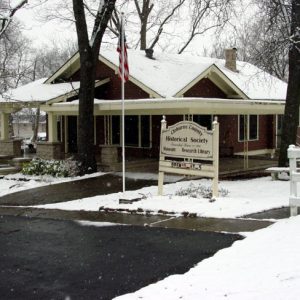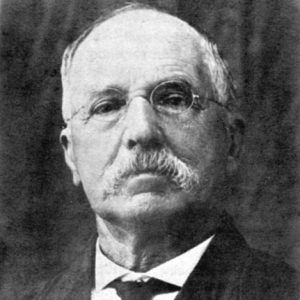calsfoundation@cals.org
Max Frauenthal (1836–1914)
Max Frauenthal, a German immigrant noted for bravery in the Civil War, established an important mercantile business in Conway (Faulkner County). He was later known as the “Father of Heber Springs and Cleburne County.”
Max Frauenthal was born on November 11, 1836, in Marienthal, Bavaria, Germany. No definite records of his parents’ or any siblings’ names are available. According to family history, his grandfather was called simply Meyer until the early nineteenth century, when the enactment of the Napoleonic Code required European Jews to take surnames; Meyer took Frauenthal, the name of a town south of Vienna, Austria.
Max Frauenthal was fifteen when he came to the United States, eventually settling in Brookhaven, Mississippi. At Summit, Mississippi, he enlisted in the Confederate army as a private for the Sixteenth Regiment, Company A, Mississippi Volunteers. On May 12, 1864, he fought at the “Bloody Acute Angle” at Spotsylvania Courthouse, Virginia. A fellow soldier there, A. T. Watts, said Frauenthal stood for several hours “at the immediate point of contact, amid the most terrific hail of lead, and coolly and deliberately loaded and fired without cringing.” Later, Confederate veterans in Texas who had come from Mississippi used “Fronthall” as a synonym for physical courage.
After the war, he established mercantile businesses in Mississippi. He married Sallie Jacobs on January 24, 1869, in Louisville, Mississippi. They had thirteen children, six of whom lived to adulthood.
In 1871, Frauenthal moved to what was then called Conway Station in Faulkner County with a railroad construction crew. He bought a building facing the railroad square for his first store there and built a small home behind it for his family. After a fire in 1878, he replaced the wooden store with the first brick business house in Conway. As his business grew, he brought in cousins Jo Frauenthal from Louisville, Kentucky, and Leo Schwarz from Germany. Frauenthal sold his interest in the business to his cousins, and the store operated as Frauenthal and Schwarz until it closed in 1952; the building is on the National Register of Historic Places.
In 1881, Frauenthal bought a tract of land that included healing springs in Van Buren County from John T. Jones. He formed the Sugar Loaf Springs Company, which plotted a town site incorporated as Sugar Loaf on October 4, 1882.
Frauenthal, the company president, donated land for a court square in anticipation of the formation of a new county. In 1883, the legislature created Cleburne County from parts of Van Buren, White, and Independence counties. Frauenthal and his Confederate veteran associates chose the name to honor Arkansas’s General Patrick R. Cleburne, killed in battle at Franklin, Tennessee, on November 30, 1864. Sugar Loaf became the county seat, and Frauenthal built a frame courthouse on land he had donated. He also donated Spring Park to the town.
In 1910, Sugar Loaf’s name was changed to Heber Springs to match the name of the town’s post office; another Arkansas post office already had the name Sugar Loaf. Frauenthal chose the name to honor John T. Jones’s son, Dr. Heber Jones, a prominent physician in Memphis, Tennessee, where Frauenthal had moved.
Frauenthal died on March 8, 1914, in McGehee (Desha County). He is buried at Temple Israel Cemetery in Memphis.
For additional information:
Doolos, Robert Kenneth. “Max Frauenthal: An Early Conway Entrepreneur.” Faulkner Facts and Fiddlings 13 (Summer 1971): 37–44.
LeMaster, Carolyn Gray. A Corner of the Tapestry: A History of the Jewish Experience in Arkansas 1820s–1990s. Fayetteville: University of Arkansas Press, 1994.
Newman, Ann. Conway, AR. Mount Pleasant, SC: Arcadia Publishing, 1999.
Rosen, Robert N. The Jewish Confederates. Columbia: University of South Carolina Press, 2000.
Jeanie Frauenthal
Little Rock, Arkansas







Comments
No comments on this entry yet.